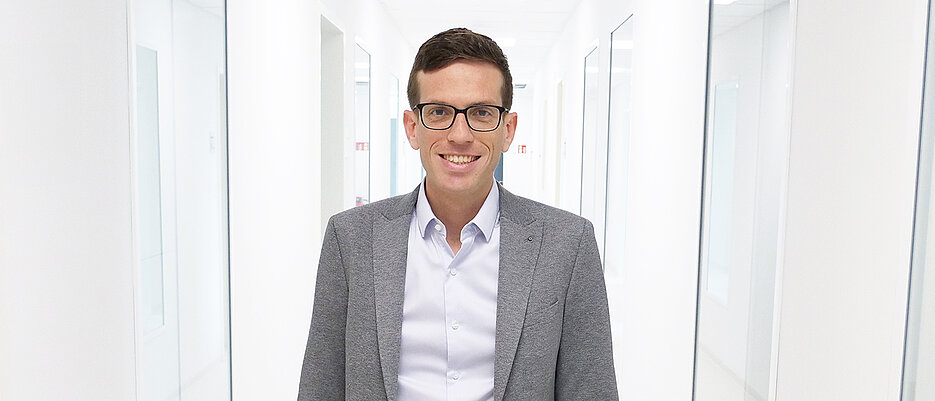Shedding Light on AI
01.06.2024Millions of people are using Artificial Intelligence, yet the technology remains a black box for most people. Damien Garreau wants to change that. The scientist joined the University of Würzburg in April 2024.

Hier kommen Sie zur deutschen Textversion
It controls our cars, helps diagnose serious illnesses and decides whether to accept or reject an application for a new job – there is hardly an area of life in which we do not use Artificial Intelligence. The problem is: Only a few users really understand how AI works and what data it uses to make decisions. As a result, incorrect or biased decisions often go unnoticed.
The solution: so-called “Explainable Artificial Intelligence“ – AI that prepares its statements in such a way that humans can easily understand them. One of the leading researchers in this field is computer scientist Damien Garreau, Professor of Machine Learning Theory at the University of Würzburg (JMU). Together with his team, he tests the functionality of various AI models and develops methods to make AI statements more transparent.
“Together with medical doctors, for example, we are working on software to predict arrhythmia“, explains the computer scientist. “We want to create an AI that independently analyses CT scans and checks for suspicious tissue. It does not only describe its findings, but also justifies them. And it does this by colour-coding the exact areas on the images.“
Mathematics as the Key to AI Analysis
Another focus of Garreau's research is to test how well different AI models work and to strengthen their informative value. “In the past automated systems used to follow a simple yes-no scheme“, says the researcher. “They went through it like a checklist from top to bottom – and if there was an error, it could be detected relatively quickly in the code.“
With AI today, things are different: “In Neural Networks, the computational path is no longer linear, but runs in parallel on several levels – and there are also significantly more computations.“ Garreau and his team analyse AI models to test the reliability of explanatory methods: “There are methods that can show how AI makes decisions by highlighting important parts of the input data“, he explains. “We test these methods by applying them to simplified models where we already know which factors are important. If the method makes mistakes, this indicates that it could be unreliable with more complex models.“
From Intern to Professor
Damien Garreau developed his enthusiasm for Artificial Intelligence during his master's degree in mathematics at the École Normale Supérieure in Paris. “In the middle of my studies, I had a real crisis of conscience“, he says. “I completely missed the practical relevance of what I was learning – and I didn't know what to do. So I was advised to do an internship in the private sector, which I did.“
It was there, in a company that analysed flight recorders, that he first came into contact with Machine Learning, a branch of Artificial Intelligence. “I immediately realised that I was fascinated by the field and that there was a huge potential that I wanted to explore and exploit. Since then, this enthusiasm has not waned, but rather grown stronger.“
A few years later, he wrote his doctoral thesis at the National Institute for Computer Science and Automation (INRIA) in Paris on kernel change-point detection – a mathematical method used to detect abrupt changes in time-series. He then spent two years as a postdoctoral researcher at the Max Planck Institute for Intelligent Systems in Tübingen, Germany. In 2019, he moved to the Université Côte d'Azur in Nice, where he worked as an associate professor until he started his professorship in Würzburg. “Here I have received a very warm welcome“, says Garreau. “I am looking forward to working with my team to advance research on comprehensible and reliable AI!“
The professorship is co-financed by the High-Tech Agenda (HTA) of the Free State of Bavaria.
Contact
Prof. Dr. Damien Garreau, Professor of the Theory of Machine Learning Group, Phone: +49 931 31-89206, damien.garreau@uni-wuerzburg.de







